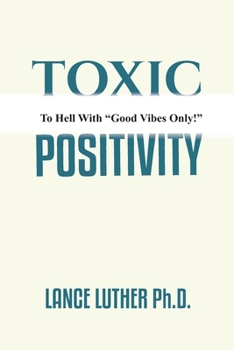TOXIC POSITIVITY: To Hell with “Good Vibes Only!”
We shouldn't have to pretend that everything's OK when it isn't.
From 'no more bad vibes' to 'be happy, ' the positivity movement has flooded social media, bringing with it all kinds of catchy quotes and phrases meant to inspire.
And while there can be benefits to engaging in optimism and positive thinking, you can have too much of a good thing. That's where "toxic positivity," or the relentless pursuit of optimism, comes in.' This way of thinking tends to rely on rejecting difficult or unpleasant emotions and putting on a cheerful, often falsely confident, facade.
In reality, though, life is a complex blend of experiences. Fixing your gaze to the bright side and refusing to acknowledge any less-than-desirable thoughts or emotions might create a temporary illusion of peace. Yet this joy tends to be false and fleeting, a subpar knockoff of true contentment.
Turning down the volume on unwanted feelings and insisting others in your life cultivate the same positivity generally won't manifest the happiness you seek. In fact, it often does the opposite.
Toxic positivity can have some harmful effects, and in the end, do more harm than good.
In this book toxic positivity, we explore what toxic positivity is, how destructive it is to ourselves and our relationships, the cure for these perilous forms of positive thinking, and approaches to dealing with toxic positivity from others. It goes further to give practical strategies for processing difficult emotions in a healthy way.





















